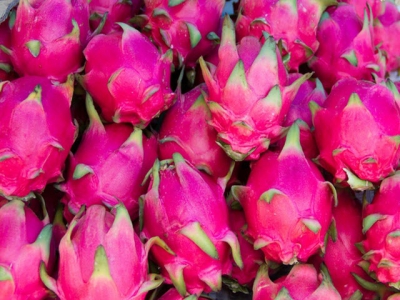Automaker buys 7.86 percent stake in agriculture company

Truong Hai Auto Corporation has acquired a 7.86 percent stake in rubber and fruit producer Hoang Anh Gia Lai Agrico.
Last year passionfruit, banana and dragon fruit, along with chili, fetched Agrico $60.37 million). Photo by Shutterstock/Operation Shooting
The Ho Chi Minh Stock Exchange recently announced that Truong Hai (THACO) had completed the acquisition of 69.7 million shares in Agrico (trading code: HNG). The deal is estimated to be worth VND1.06 trillion ($45.5 million).
THACO becomes a major shareholder under Vietnamese law, a status it confers on a shareholder directly or indirectly owning at least 5 percent of voting shares.
Last August THACO paid VND3.8 trillion ($168.8 million) to buy one-year convertible bonds issued by Agrico which can be converted into 221 million shares upon maturity, equivalent to a 35 percent stake in the company.
Agrico has been facing financial difficulties since early 2018. It reported revenues of VND1.66 trillion ($71.59 million) in 2018 and losses of VND171.75 billion ($7.41 million) against profits of VND9.16 billion ($395,000) the previous year.
In 2019 first quarter consolidated financial reports showed that the company lost VND99 billion ($4.22 million), the third straight quarter of loss.
THACO stepped in several times and rescued Agrico from financial difficulties. It has so far injected around VND22 trillion, or nearly $1 billion, in the form of equity and loans and helped Agrico restructure.
The latter has been growing fruits since 2016. Last year passionfruit, banana and dragon fruit, along with chili, fetched VND1.4 trillion ($60.37 million), or around 84 percent of its revenues. Its main markets are China and Thailand.
Dong Nai-based THACO is a car and commercial vehicle maker established in 1997. It has a plant in Quang Nam and 89 showrooms and 53 dealerships. It makes trucks and buses and assembles cars for Japanese giant Mazda, Kia (South Korea), and Peugeot (France).
Related news
 An Giang mangoes to gain entry into US market
An Giang mangoes to gain entry into US market The export of mangoes to the US and other demanding markets currently makes up a small proportion of overall trade.
 Conservation farming helps Zambian smallholders thrive
Conservation farming helps Zambian smallholders thrive People living in the Simalaha Community Conservancy in western Zambia have risen out of poverty through the use of conservation agriculture (CA) methods
 Enterprises invest comprehensively to bring Vietnamese fruits into fastidious markets
Enterprises invest comprehensively to bring Vietnamese fruits into fastidious markets To meet the strict requirements of fastidious markets, many Vietnamese enterprises have stepped up investment in raw material areas, preliminary processing